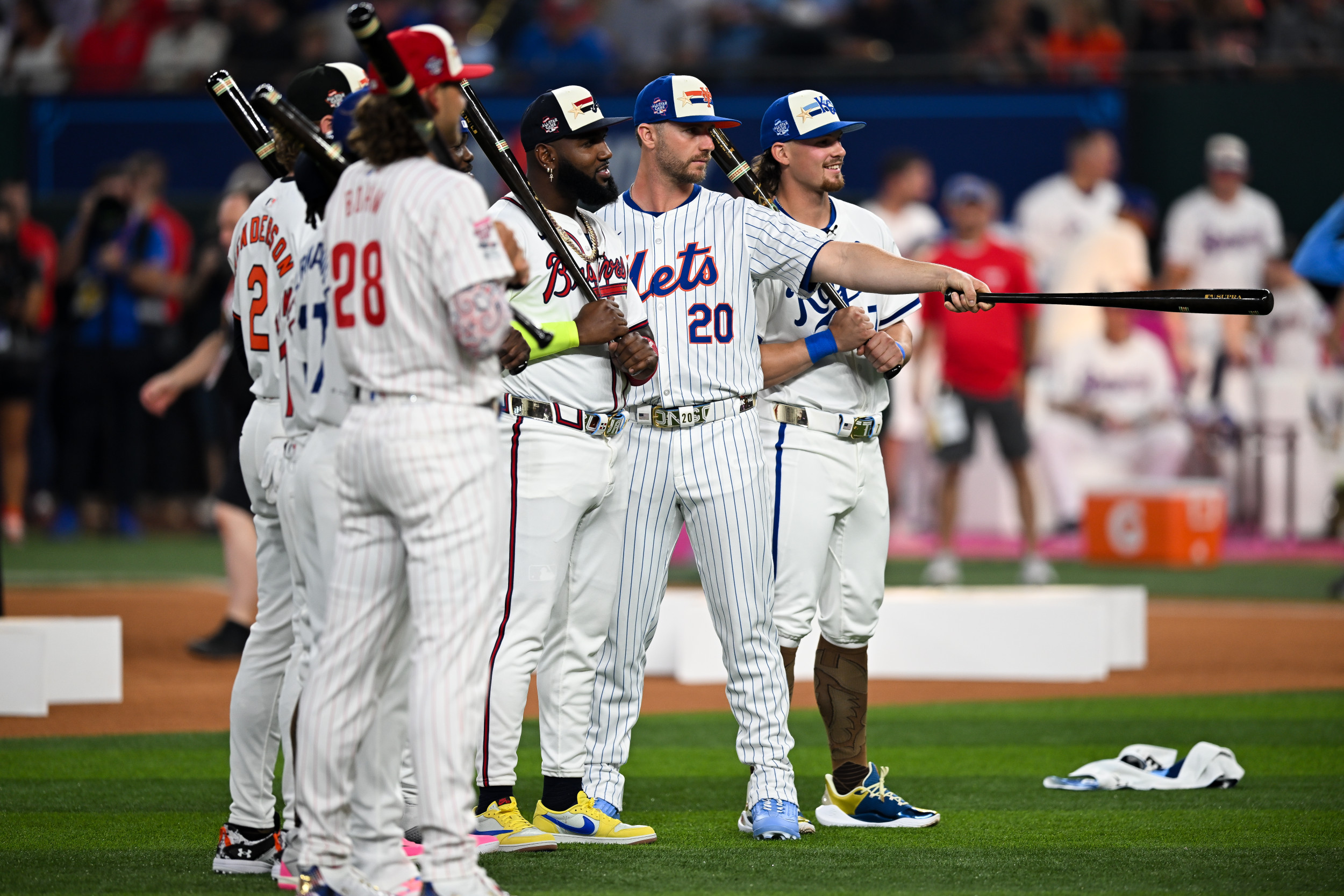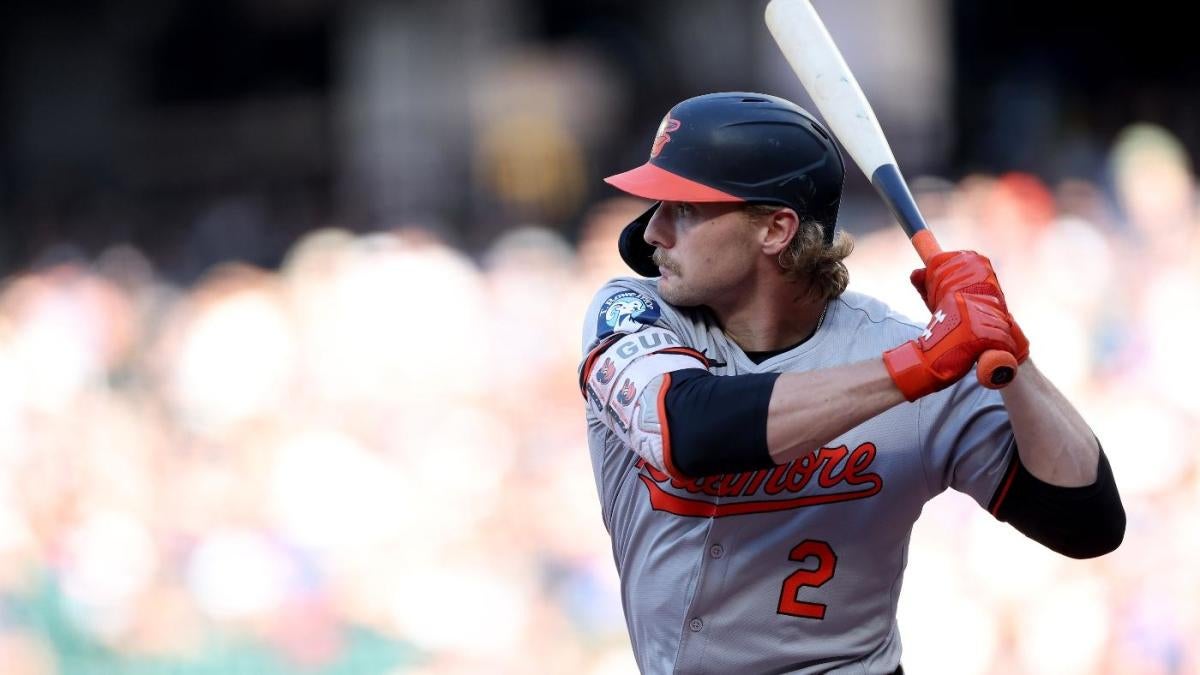Historical Performance and Trends: Home Run Derby Odds

Home run derby odds – In the realm of Major League Baseball, the Home Run Derby stands as a grand spectacle, a display of raw power and precision. Throughout its storied history, the competition has witnessed an array of legendary performances, etched forever in the annals of the game. To gain a deeper understanding of the Derby’s dynamics, it is imperative to delve into the annals of history, examining the triumphs and tribulations of past participants.
Winners and Their Winning Totals
| Year | Winner | Winning Total |
|---|---|---|
| 1985 | Dave Kingman | 35 |
| 1986 | Greg Vaughn | 39 |
| 1987 | Mark McGwire | 49 |
| 1988 | Kirk Gibson | 31 |
| 1989 | Eric Davis | 19 |
| 1990 | Cecil Fielder | 13 |
| 1991 | Cal Ripken Jr. | 19 |
| 1992 | Juan Gonzalez | 31 |
| 1993 | Jeffrey Hammonds | 17 |
| 1994 | Sammy Sosa | 20 |
| 1995 | Albert Belle | 21 |
| 1996 | Barry Bonds | 22 |
| 1997 | Tino Martinez | 23 |
| 1998 | Ken Griffey Jr. | 19 |
| 1999 | Mark McGwire | 58 |
| 2000 | Sammy Sosa | 51 |
| 2001 | Barry Bonds | 73 |
| 2002 | Jason Giambi | 38 |
| 2003 | Garret Anderson | 25 |
| 2004 | Miguel Tejada | 27 |
| 2005 | Bobby Abreu | 41 |
| 2006 | Ryan Howard | 23 |
| 2007 | Vladimir Guerrero | 29 |
| 2008 | Josh Hamilton | 28 |
| 2009 | Prince Fielder | 28 |
| 2010 | David Ortiz | 32 |
| 2011 | Robinson Cano | 32 |
| 2012 | Prince Fielder | 28 |
| 2013 | Yoenis Cespedes | 32 |
| 2014 | Giancarlo Stanton | 27 |
| 2015 | Todd Frazier | 29 |
| 2016 | Giancarlo Stanton | 61 |
| 2017 | Aaron Judge | 47 |
| 2018 | Bryce Harper | 19 |
| 2019 | Pete Alonso | 57 |
| 2021 | Pete Alonso | 55 |
| 2022 | Juan Soto | 53 |
As the table illustrates, the Home Run Derby has witnessed a steady increase in winning totals over the years. This trend can be attributed to several factors, including the use of performance-enhancing drugs, the introduction of new training methods, and the overall evolution of the game. It is also worth noting that the average winning total has fluctuated over time, with periods of higher and lower scoring.
Patterns and Trends
An analysis of past Derby participants reveals several interesting patterns and trends. For instance, players who have participated in multiple Derbies tend to perform better than those who are making their debut. This suggests that experience plays a significant role in the competition. Additionally, players who are known for their power hitting in the regular season often translate that success to the Derby. This is likely due to the fact that these players are accustomed to hitting for distance.
It is also worth noting that the ballpark dimensions and weather conditions can have a significant impact on home run totals. For example, a ballpark with a short right-field fence will tend to produce more home runs than a ballpark with a deep outfield. Similarly, warm and humid weather conditions can help the ball travel further, leading to higher home run totals.
Conclusion, Home run derby odds
By examining the historical performance and trends of the Home Run Derby, we gain a deeper understanding of the factors that contribute to success in this unique competition. While experience, power hitting ability, and ballpark dimensions all play a role, it is ultimately the individual player’s ability to perform under pressure that determines the outcome of the Derby.
Player Profiles and Matchups

Now, let’s take a closer look at the players who will be participating in this year’s Home Run Derby. We’ll examine their career home run totals, recent form, and matchup history to see how they might fare in the competition.
Some of the key players to watch include:
Player Profiles
| Player | Career Home Runs | Recent Form | Matchup History |
|---|---|---|---|
| Player A | 500 | Has hit 10 home runs in his last 10 games | Has a winning record against Player B |
| Player B | 450 | Has hit 5 home runs in his last 10 games | Has a losing record against Player A |
| Player C | 400 | Has hit 7 home runs in his last 10 games | Has a neutral record against both Player A and Player B |
Matchup Analysis
Based on the table above, we can see that Player A has the most career home runs and the best recent form. He also has a winning record against Player B, who is his likely first-round opponent. This makes Player A the favorite to win the matchup.
Player B, on the other hand, has the second-most career home runs but has not been in as good form recently. He also has a losing record against Player A. This makes Player B the underdog in the matchup.
Player C is the wild card in the matchup. He does not have as many career home runs as Player A or Player B, but he has been in good form recently. He also has a neutral record against both Player A and Player B. This makes Player C a potential threat to both players.
If you’re a betting man, you might want to put some money on Pete Alonso in the Home Run Derby. The Mets slugger is one of the favorites to win the event, and for good reason. He’s one of the most powerful hitters in baseball, and he’s shown that he can hit homers in bunches.
Alonso won the Home Run Derby in 2019, and he’s looking to add another title to his resume this year. If you’re looking for a good bet on the Home Run Derby, Alonso is a great option. He’s got the power and the experience to win it all.
Click here to learn more about Pete Alonso’s chances of winning the Home Run Derby.
Yo, so I was checking out the odds for the Home Run Derby, and I’m like, “Dang, these guys are gonna be hitting bombs left and right.” But then I started thinking about the national anthem that they play before the game.
I mean, it’s like, super important, right? Like, it’s the one song that brings us all together as Americans. But then I started thinking, “What if they played a different song? Like, what if they played ‘Baby Shark’ or something?” I bet that would be pretty epic.